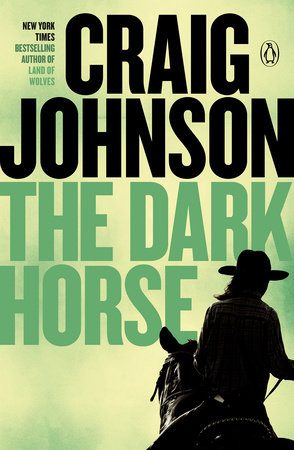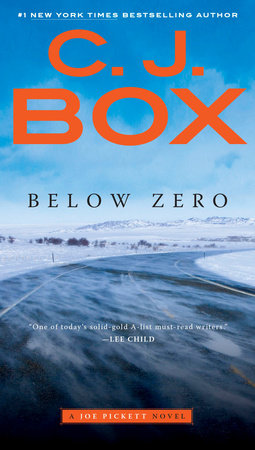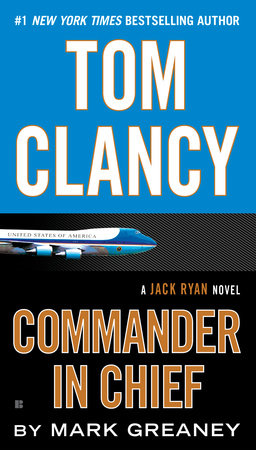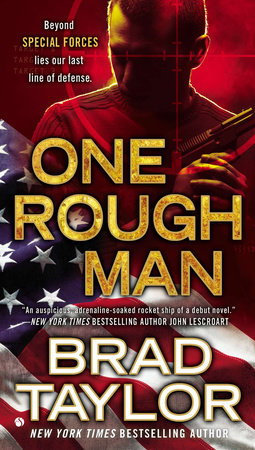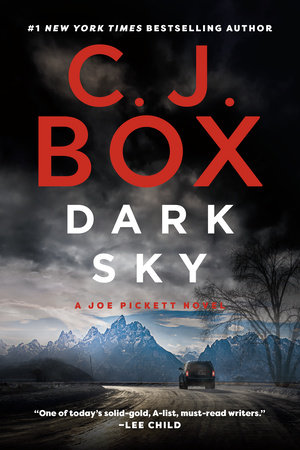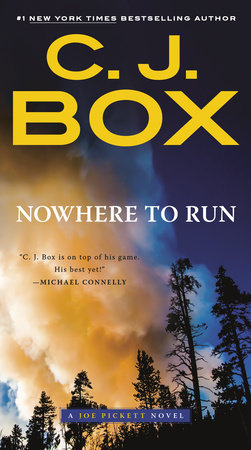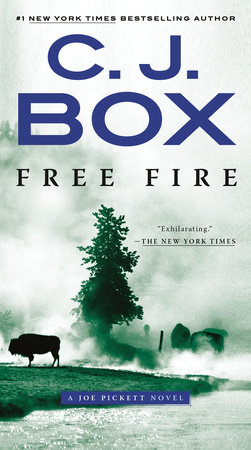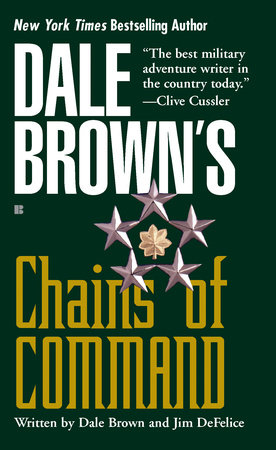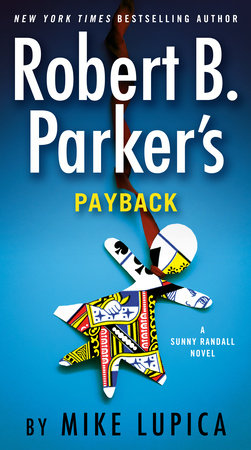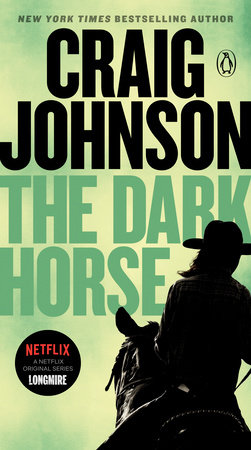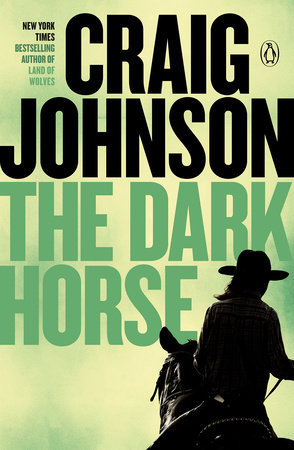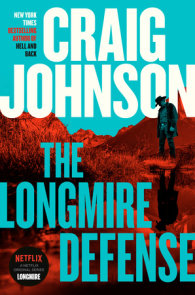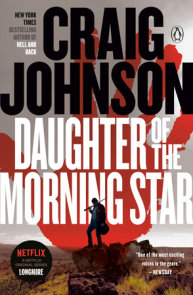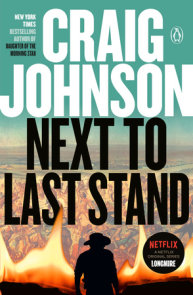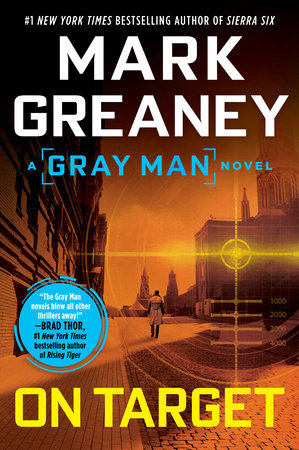Author Q&A
When you first started writing The Dark Horse , what was the first scene you envisioned and how did the rest of the novel develop from there?
I’ve always looked at my protagonist as a vertical figure on a horizontal landscape, and the opening scene of The Dark Horse is no different. The opening scene was always the one of Walt at the bridge overlooking Absalom for two reasons; first, I wanted to begin with the sheriff entering an unfriendly town to get the action going rather than having the reader sit through an elongated exposition. This also led to the split-time narrative that I’d used in Another Man’s Moccasins . The second reason for using the form is that I like to bookend the novels and have Walt end the book in the place where he started out—in that sense, the bridge became a metaphor and a landmark.
What do you see as the code of the West, and does it still exist—if it ever did—outside of fiction?
There’s a great line from Ride the High Country , the Sam Peckinpah film with Joel McCrea, where McCrea’s character, an older lawman, makes the remark that he just wants to enter his house justified. I don’t think there’s a geographical aspect to doing the right thing, it varies from person to person. The West is interesting in that it’s so physically large and the population is so small, and this makes for a stark ethical background. I think it’s easier to respond to society’s mores when you have an audience; it’s when you are alone that your true character shows—that’s when the code of the West becomes interesting to me.
In what ways is Wyoming different from other Western states? Could you—or Walt—ever live anywhere else?
Wyoming is the least populated state in America , and I’ve got to admit that I like that. I was recently at the National Book Festival in Washington , D.C. , and the woman who was in charge of wrangling me was apologizing for the long lines at lunch and then asked me what the lines were like in Wyoming . I told her that we didn’t have lines, and that folks tend to bunch up in the front and say, “You first.” I like Wyoming best, or else I wouldn’t have built my ranch here, but I’m not particularly metrophobic. I like New York , Los Angeles , Paris , Omaha . . . . I think city life provides a stimulus that a lot of people respond to, but I enjoy the isolation of ranch life, it keeps me focused. As for Walt, I think he’s the same way; he enjoys the city (see Kindness Goes Unpunished ), but he also enjoys coming home.
Dog and Wahoo Sue are as rich and developed as any of the novel’s human cast. Do animals have a different role in the West than they do in more populated parts of the world?
With animals, I think it’s just a question of being around them, not really a question of geography. I’m sure the hansom cab drivers in Central Park have just as close a relationship with their horses as the cowboys of Wyoming . Like Hershel says in The Dark Horse , “Animals are the finest people I know.”
Cady put herself on a “mystery-a-day” program while recovering from her injuries. Why do you think someone who endured the kind of trauma that Cady went through would enjoy reading mysteries? Why are so many people drawn to this genre?
It appears to be a universal, whether it’s simply a voyeuristic glimpse into another world, or a quest for justice that seems to elude us in reality. We live in a time when crime fiction readers are more sophisticated, they expect arc of story, fully developed characters, social commentary, historical accuracy, and humor. I think it’s also a question of what my buddy Tony Hillerman used to call “telling a good story.” One thing is for sure—you’re dealing with life and death and the stakes don’t get any higher.
Even though Henry Standing Bear has a relatively minor role in this book, he is a big influence on Walt. Twice in the novel—when Walt is fighting Cliff Cly and when he’s trying to outrace a truck—he draws on advice he received from the Cheyenne Nation. Who would Walt be without Henry?
Up shit creek, without the proverbial or figurative paddle. People always refer to Henry as Walt’s sidekick, but I think it might be more like Walt is Henry’s. I’ve got a good Cheyenne friend, Marcus Red Thunder, and I draw an awful lot of Henry from him. I think if you’re lucky enough to have one good friend in life, you’ve done well. Walt’s done well, too.
When Walt tries to persuade Rose to stop drinking until her baby is born, she tells him, “Mr. Good Samaritan, you’re in the wrong town” (p. 89). It must have been difficult for you/Walt to accept the helplessness of his position considering the possible consequences. Could you talk about this?
I think it was intrinsic to the book to have Walt out of his element, away from all of his usual resources, which only amplifies the helplessness you sometimes feel in law enforcement. It’s frustrating, sure, but you keep going out there and doing the job because people need you to do that. Walt is something of a knight in that respect—I think it’s Ruby who comments on that part of Walt’s character.
The Walt Longmire novels are never afraid to tackle issues of social inequity. Is this why you choose to write Juana—the most intelligent resident of Absalom—as an illegal immigrant? What are you trying to say through her character?
She was an outsider in a town of outsiders and emblematic of one of the book’s themes—that sometimes the rules aren’t meant to apply to everybody. That’s the big question here—what society is and what happens when it breaks down. She says it best herself when she addresses the myth of independence in the West. There is a dichotomy in the structure that she embodies.
Cowboy movies have been around for as long as Hollywood , so it’s difficult not to compare fictional cowboys with their cinematic counterparts. Is Walt’s character influenced by, say, Jimmy Stewart or Clint Eastwood? Who would you cast as Walt in a film adaptation?
It is, but I don’t. I avoid using actors as characters, simply because I don’t know any. I prefer to use real people from my life. I get asked that question a lot, though—Gary Cooper, but he’s not returning our calls.
Walt’s adventures seem to strike increasingly closer to home. Where will Walt Longmire’s boots take him next?
The next book, Junkyard Dogs , is very loosely based on a story I actually took from my little town of twenty-five. There’s this junkyard to the south of Durant and when a new housing development is built nearby, the conflict leads to a modern day range war. I realize it doesn’t sound like it, but it might be the funniest Walt book yet.
